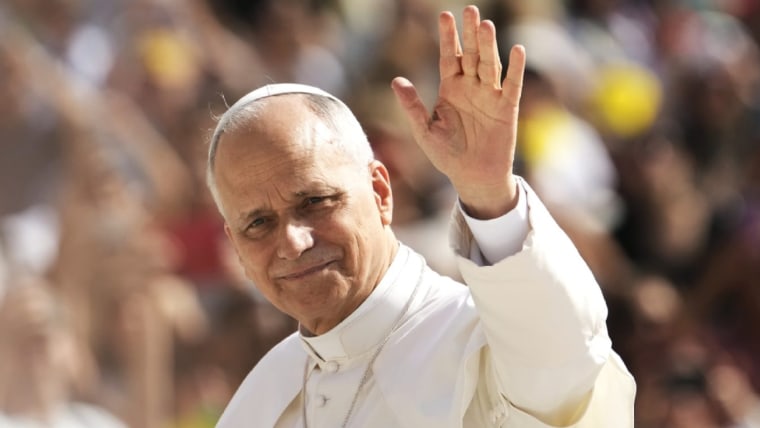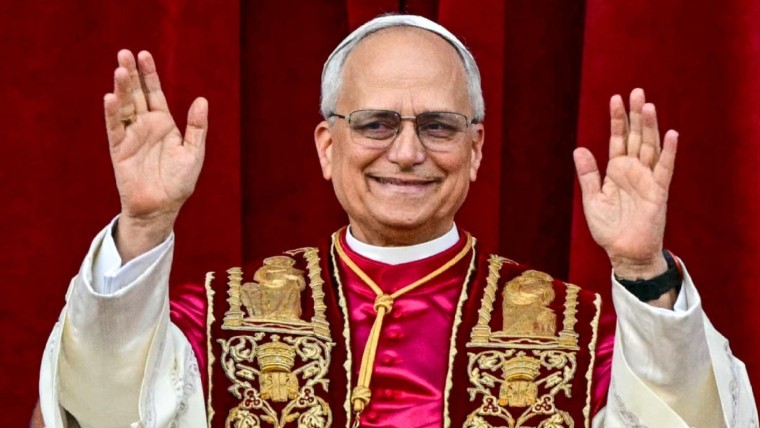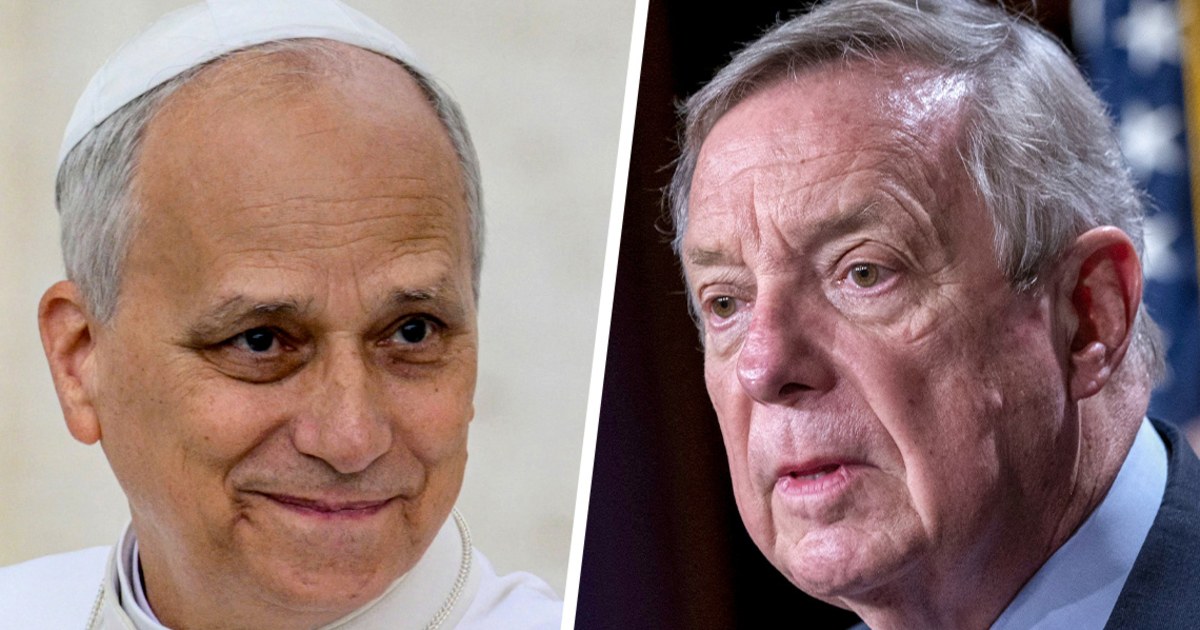Remarking on the news this week that Chicago Cardinal Blase Cupich would present Sen. Dick Durbin, a strong supporter of abortion rights, with a lifetime achievement award, Pope Leo gave a theologically correct answer to Durbin’s critics, including some Catholic bishops, who argue that the Illinois senator’s views on abortion should disqualify him. Leo said a potential awardee’s work should be considered in total, not just their position on a single issue. And that being against abortion isn’t the only component of being pro-life.
Someone who says that ‘I’m against abortion, but I’m in agreement with the inhuman treatment of immigrants in the United States,’ I don’t know if that’s pro-life.
POPE LEO xiv
“Someone who says, ‘I’m against abortion but says I am in favor of the death penalty’ is not really pro-life,” he said Tuesday. “Someone who says that ‘I’m against abortion, but I’m in agreement with the inhuman treatment of immigrants in the United States,’ I don’t know if that’s pro-life.”
Not surprisingly, the pope’s statement, especially the part about the inhumane treatment of immigrants here, infuriated conservatives and was commented upon by the White House press secretary Karoline Leavitt, who took the opportunity to spin the administration’s mistreatment of immigrants by saying Wednesday that she “would reject there was inhumane treatment of illegal immigrants in the United States under this administration.”
I think Pope Leo knows that is not the case. Reports from the press and rulings from multiple judges undercut Leavitt’s claim that “this administration is trying to enforce our nation’s laws in the most humane way possible, and we are upholding the law.”

It is doubtful that the pope will lose any sleep at night over his detractors, but his statement that Sen. Durbin’s decades of public service should be considered as a whole makes this an opportune time to explain some important points about Catholic teachings that supersede contemporary MAGA politics.
First, when Pope Leo said that a pro-death penalty person isn’t pro-life, he was only drawing from Catholic teaching, which states life begins at conception and goes all the way until death. The death penalty, according to Catholic Church teachings in the Vatican II document Gaudium et Spes (27), disregards the inherent dignity of the human person. No matter how reprehensible the crime committed, even the life of the person who committed it is deemed sacred. Opposition to abortion is part of this theological construct, and while many Americans know the Catholic Church for its strong stance against abortion, many have ignored or ridiculed anti-death penalty advocates such as Sister Helen Prejean. They seem unaware that her fight against the death penalty comes from a deep understanding of and commitment to Catholic teaching.
When Pope Leo said that a pro-death penalty person isn’t pro-life, he was only drawing from Catholic teaching.
The humane treatment of immigrants is also part of Catholic social teaching, which defends the right of peoples to migrate to sustain their lives. Consideration is also given by the church to countries and nations to decide how to regulate their borders, and to do so with justice and mercy; but the upshot is you can’t say you are pro-life and then treat other human beings in horrible ways because they’re migrants.
This is why the issue of immigration has been hard in some ways for the U.S. Conference of Catholic Bishops to navigate. On one hand, it has been easy for them to be consistent about pro-life with regard to abortion. But it has been difficult across the board to have the bishops be in consensus about immigration. Being true to Catholic teachings means respecting human life and respecting the government … until the government’s treatment of immigrants becomes punitive. But the fact remains that many of the people being taken by Immigration and Customs Enforcement are faithful Catholics. So, the pope’s answer, while incomplete, demonstrates how the church is trying to walk a tight rope: Respect the government and call out its ramped-up deployment of ICE, with many officers having been recorded acting like brutes.

The White House pushed back as hard as it did on Pope Leo’s statement likely because the administration is courting conservative Catholics in an attempt to bolster its credibility. On Sept. 29, for example, the White House published on its website a “Presidential Message on the Feast of St. Michael the Archangel,” featuring a prayer that Pope Leo XIII introduced in 1886 after having a vision of demons and apocalypse. It was a prayer, in part, to defend against the Italian government campaign against the papal states. So why is a president who says he’s a nondenominational Protestant acknowledging a prayer to St. Michael from a long-dead pope?
Recognition of the anniversary of the prayer of St. Michael and the uproar about Pope Leo’s comments may seem unrelated, but both are about the attempt of the current administration to consolidate religious power. Unlike evangelicals who have bought into Trump’s anti-immigrant stance, Catholics are a much more difficult religious group to capture in this regard. That’s why an administration led by a president who routinely expresses glee at inflicting pain upon others is denying — contrary to the evidence — that it is treating immigrants inhumanely. That’s why it’s bringing up Pope Leo XIII’s prayer: to try to get conservative Catholics to ignore the affronts to Catholic social teaching that the administration is carrying out.
Pope Leo’s statement affirmed the church’s stance on abortion, but also illuminated a harsh truth: This administration is wrong to be doing what it’s doing to migrants, no matter what prayer it puts on its website.
